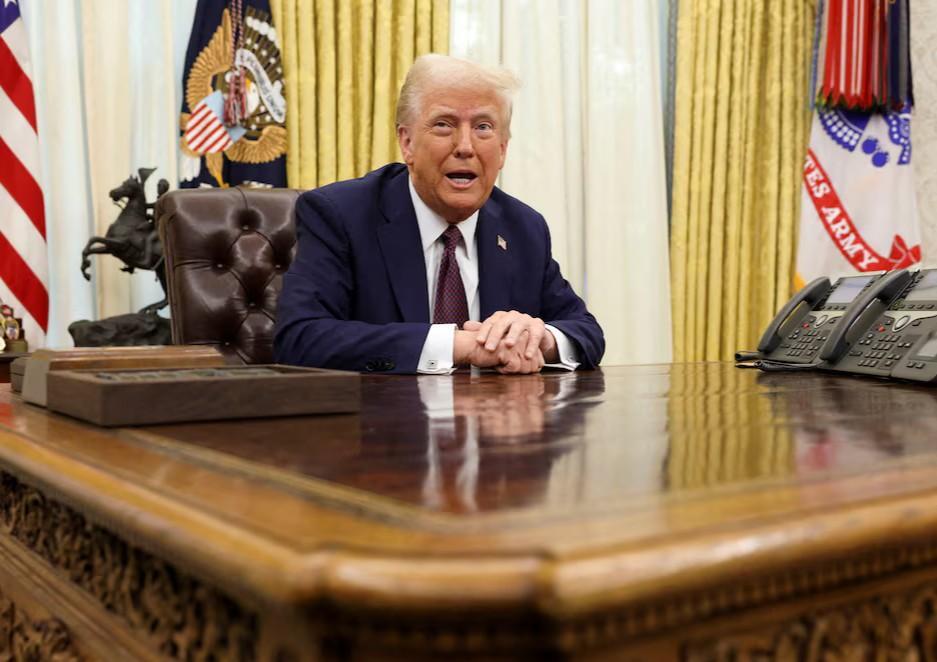
Trump Plans Reciprocal Tariffs, Says They Will Affect “Everyone”
In a move that is set to have far-reaching consequences for global trade, United States President Donald Trump has announced plans to unveil reciprocal tariffs that will affect “everyone”. The tariffs, which are expected to be announced next week, are aimed at leveling the playing field and ensuring that the US is treated fairly by its trade partners.
“We don’t want any more or any less,” Trump said, emphasizing his commitment to reciprocity. The US President has been a vocal critic of the current trade system, which he believes favors other countries at the expense of the US. He has repeatedly threatened to impose tariffs on goods imported from countries that he believes are taking advantage of the US.
The announcement comes just days before Indian Prime Minister Narendra Modi is set to visit the US, sparking concerns that the tariffs could have a significant impact on India-US trade relations. Trump has been a strong supporter of Modi and has praised his economic reforms, but the tariffs could still create tension between the two leaders.
The US has already imposed 25% tariffs on goods imported from Canada and Mexico, which have been a major source of tension between the US and its North American neighbors. However, Trump later paused the tariffs, which were set to take effect in June, pending further negotiations.
The move to impose reciprocal tariffs is seen as a major shift in the US’s trade policy, which has traditionally been focused on promoting free trade and reducing barriers to trade. The tariffs are likely to be met with resistance from other countries, which could lead to a trade war.
The impact of the tariffs will be felt across the globe, with countries that rely heavily on exports to the US likely to be hit hardest. The tariffs could also lead to higher prices for consumers, as companies pass on the increased costs to customers.
The US Chamber of Commerce, a leading business lobby group, has warned that the tariffs could have a devastating impact on the US economy. “Tariffs are taxes, and they will increase the cost of living for American consumers,” said the Chamber’s CEO, Thomas Donohue.
The tariffs could also have a significant impact on the US’s closest allies, particularly in Europe. The European Union has already threatened to impose tariffs on US goods in response to the US’s tariffs on steel and aluminum.
The move to impose reciprocal tariffs is seen as a major departure from the US’s traditional approach to trade. The US has long been a champion of free trade, advocating for the reduction of trade barriers and the promotion of global economic growth.
However, Trump’s approach to trade has been more protectionist, with a focus on protecting American jobs and industries. The tariffs are seen as a way to achieve this goal, by making it more difficult for foreign companies to import goods into the US.
The impact of the tariffs will be felt across a range of industries, from manufacturing to agriculture. The tariffs could lead to higher prices for consumers, as companies pass on the increased costs to customers.
The US is the world’s largest economy, and its trade policies have a significant impact on the global economy. The tariffs are likely to be met with resistance from other countries, which could lead to a trade war.
The US is also likely to face criticism from other countries, which could lead to a backlash against the US. The tariffs could also lead to a decline in US exports, as other countries impose their own tariffs in response.
The move to impose reciprocal tariffs is seen as a major shift in the US’s trade policy, which has traditionally been focused on promoting free trade and reducing barriers to trade. The tariffs are likely to be met with resistance from other countries, which could lead to a trade war.
Source:






